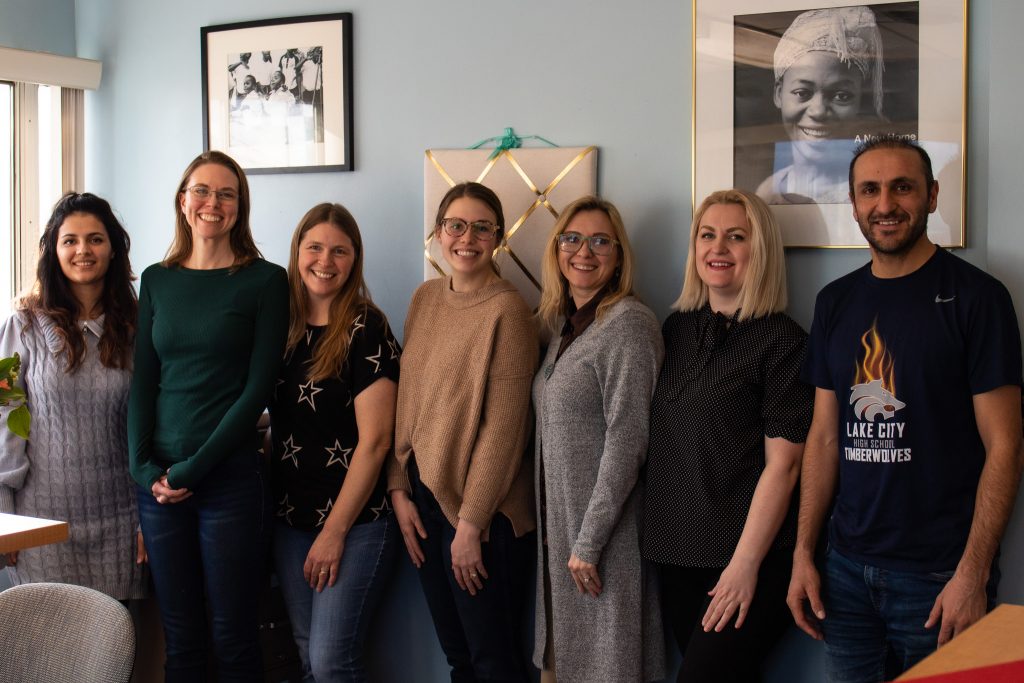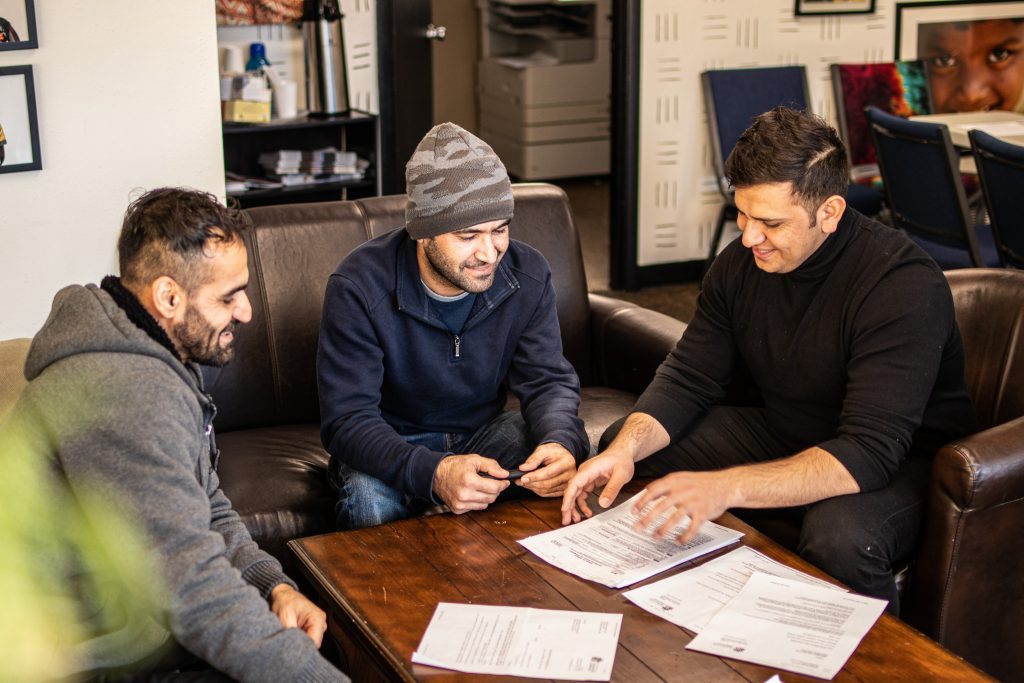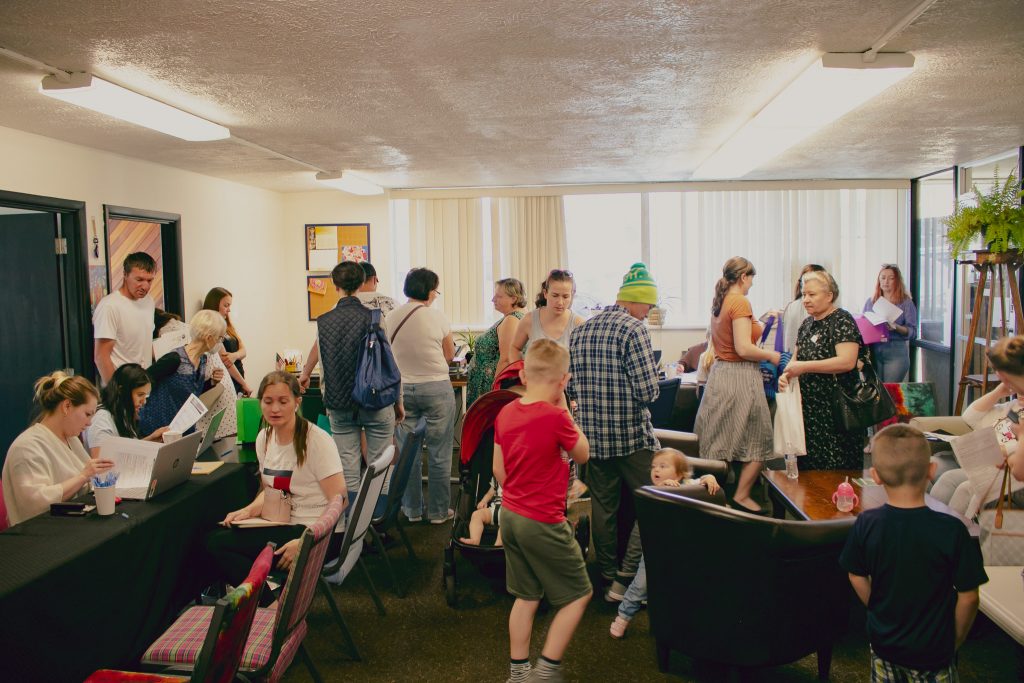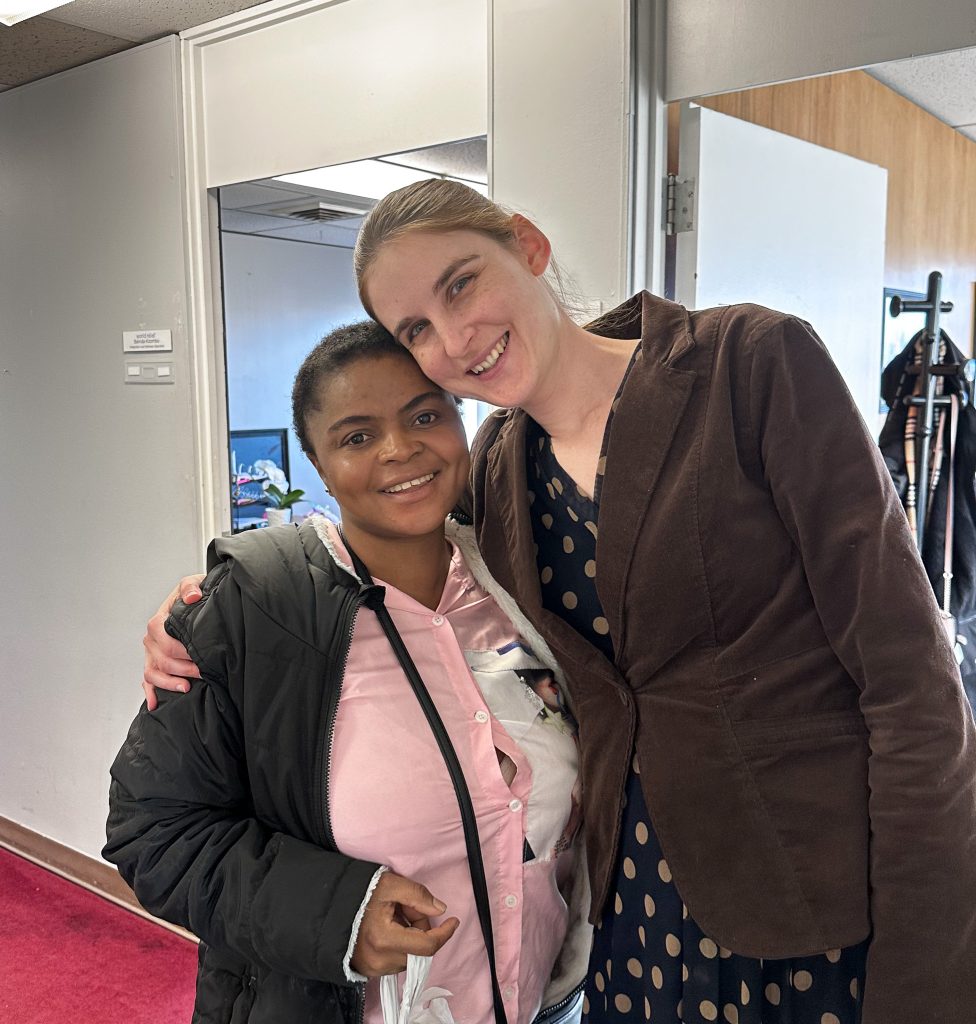By Cade Hajovsky, Fall Intern
What Is Intensive Case Management?
Not all newly arrived refugees can become self-sufficient and independent in 90 days. Many immigrants need more support. Through our Integration and Wellness department, World Relief provides case management to those struggling to get established. Case managers help clients navigate the health care system, legal resources, housing and financial management services, educational services and more. They connect clients with other agencies who provide direct services, while coaching them in accessing services and resources. The goal is to empower clients and connect them with support systems (physical, emotional, social) as they adjust to life in America.
Volunteers can be a significant help in this process by walking alongside families as they figure out their tight budgets, work on their language skills, learn the culture, and build a network of support. They often bring a wealth of experience and knowledge and still report back that they also learned and grew through the experience.
The purpose of Intensive Case Management is to offer services and help from World Relief beyond the initial 90-day resettlement program — up to 5 years after arrival. Intensive Case Management is one of three teams in the Integration & Wellness Department, which serves hundreds of clients each month.
Integration & Wellness

Andrea Simpson, Director of Integration & Wellness, has been at World Relief since 2008. She began her work as a case manager within the resettlement department, worked her way up to supervisor, and now serves on the leadership team. Within her role, Andrea oversees three teams: Intensive Case Management; Education Services and the Friendship Center/Community Ambassador Team. Intensive Case Management encompasses two programs: Preferred Communities (PC) and Promoting Refugee Integration, Mobility and Empowerment (PRIME).
PC is a program that receives federal funding and supplemental state funding. PRIME is funded by the state. Each of these programs consists of employees who work one-on-one with refugees and their families to overcome challenges. Generally, each case manager works with 10-15 clients at a time.
The time that clients stay within Intensive Case Management programs varies, but the goal is to provide support to our new community members for as long as needed. The case managers in the PC program have a 1-2 year track with a minimum of six months. In PRIME, there is no definitive timeline, a refugee could re-enroll every year until they are no longer eligible (five years). This is a rarity, however, as the purpose of Intensive Case Management is to move clients toward self-sufficiency. Long-term engagement generally only happens if there are extenuating circumstances that would cause someone to stay in PRIME for a longer amount of time, typically medical needs.
In addition to the PC and PRIME programs, Andrea also oversees the Education Center. The Education Services team launched last year and is currently hosting small group education classes on finances, computer skills, housing, and more. Morella Perez-Suels, Manager of World Relief Education Services, believes strongly in working to understand the needs of clients first and then craft educational programs to help fill the gaps.


The Friendship Center is home base of the Community Ambassador team, a program birthed during COVID which has become an invaluable means of connecting with the various immigrant groups within Spokane. Community Ambassadors are already leaders within their individual communities, so they can serve as a bridge between World Relief and the various immigrant groups — letting World Relief know about the needs their community is experiencing and relaying word about available resources back to the communities. Ambassadors help in a wide variety of roles — interpreting and translation, helping to fill out paperwork, delivering food boxes, taking children on field trips to the roller rink or Mobius, connecting families with the Farmers Markets, etc. Melissa Stipek, who oversees the Friendship Center and the Community Ambassador program, describes the Friendship Center as “the happy side of World Relief.”
“I believe for people to be able to flourish, they need to be happy. When people are happy, their mind clears, and they are open to new ideas.” — Melissa
Client Challenges
New immigrant families face a host of challenges, such as language, housing, financial management, schooling, transportation, childcare, healthcare. The first focus area of Intensive Case Management is helping families address these obstacles so that they can stabilize and not be in constant crisis. Secondly, they help refugees build a firm foundation and move forward into integration and empowerment.
The top two challenges case managers address are housing and finances.
“When families first arrive, they do not have very many options for housing as they do not have rental or credit history, which often leads to them not getting their ideal housing,” Andrea said. “Also, with housing prices going up, there have been issues with families not being able to find affordable rent.”
Families who arrive through World Relief’s resettlement programs are initially paired with the resettlement teams who diligently work to find them housing. Intensive Case managers get involved with housing later down the line and generally work with families looking for their second home, not their first home.
In addition to assisting with housing, case managers help clients budget, apply for jobs and programs, and teach them how to connect with different resources.
“Intensive Case Management is necessary because if you picked up tomorrow and moved to another country, you would have lots of lessons to learn,” Andrea said. “How do I get a phone? How do I get from here to there? How do I pay for this? What if I want to buy a house? How do I support my children? Everything you want to do, you have to learn anew.”
As soon as they arrive in the United States, refugees are learning how to navigate life in the United States, which includes the need to understand technology. The digital climate of the U.S. requires people to know how to navigate the internet and complete tasks online, such as applying for a job. For someone who has never used a computer before, this can be a very difficult transition. Through the Education Center, immigrants are learning how to navigate the online world.
Through help with housing, transportation, education and finances, the main goal of the Integration & Wellness department is to help refugees gain confidence and get to a point where they feel comfortable navigating life without as much support from World Relief.
Self-Sufficiency
The mission of World Relief is not simply to make sure a refugee is in a home and has a job; it is to walk with them until they are in a position to flourish in their new home.

“Integration and Wellness is all about empowerment,” Andrea said. This process is executed through setting goals that help refugees build stability.
While a refugee can enter into Intensive Case Management as soon as their time with the resettlement department is over, this is not normally the case.
“Everyone hits that wall, usually after they have been here for six months, where they say, ‘This is not what I expected,’” Simpson said. “’The people, the food, the housing, the job, it’s not what I expected.”
When this time comes, the Intensive Case Management team welcomes refugees with open arms and works diligently to assist them in their struggles. Stability is not built overnight; it is a process of gaining confidence, skills, and experience that lead to this sense of empowerment for refugees.
At World Relief, we never want refugees to feel alone on this journey. We work to provide them with the resources and connections they need to succeed and feel empowered, and the work of Intensive Case Management greatly contributes to this mission.
